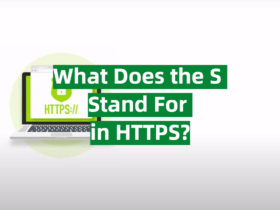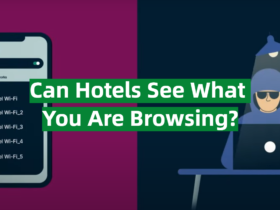If we use Occam’s razor and, instead of spawning entities unnecessarily, focus on the essentials, we can say that Edward Snowden and the worldwide quarantine have suddenly and forever changed our understanding of Internet safety rules.
Snowden healed us from the illusion that ordinary people have nothing to fear from surveillance by the special services, since, due to their insignificance, they are of no interest to those who scour the Internet in search of other people’s secrets. It suddenly turned out that Big Brother is not a terrible metaphor from Orwell’s novel, but a giant nameless machine that steals every bit that it can reach, not because it needs exactly you, but simply because of the technical capabilities and our carelessness that allow this machine to do it.
Related Review: Best VPN Services for DD-WRT
Quarantine, on the other hand, showed both mid-sized business owners and CEOs of transatlantic corporations that they could successfully continue to work by putting employees at computers in their homes, and thus saving on office bills. The only difference is that instead of a local office network, remote employees use the regular Internet. And here again, it is worth remembering Edward Snowden: if any data transmitted to the open Internet air can be stolen, then it is scary to even imagine what harm can be done by stealing corporate information transmitted by an employee from his home office to the company’s server.
That is why the market segment that provides solutions for guaranteed secure data transmission – as much relatively simple as incredibly complex ones – has been developing so rapidly in the last one and a half to two years. Today more than a quarter of all Internet users in the world use VPN.
IT specialists and just people who are interested in how the data transmission system on the Internet works, know that security systems at the hardware level are always more reliable than only software solutions. That is, a firewall embedded in your router is more reliable than a pure software one, and it is much more difficult to hack it. Therefore, when the demand for programs that provide secure data transfer through secure VPN tunnels increased sharply, it was easy to predict that the appearance of equipment that guarantees such protection at the hardware level would not have to wait long. And of course, it happened.
Today, many companies – as well high-branded, as almost completely unknown ones – offer routers with built-in VPN and VPN concentrators, which allow not only to secure individual private connections (software services from reliable manufacturers do a good job with this task as well) but also to build VLANs for businesses with thousands of employees and customers spread across different continents.
“Tell it so that your mom will understand”
Since such devices began to appear on the market quite recently, not everyone understands the sense of purchasing them, not to mention the fact that not even every computer specialist can explain the difference between a VPN router and a VPN concentrator. And the few publications on this topic that can be found on the Internet are often written in such a complicated language that you need to be a certified expert to understand what it is about. Therefore, in this article I will try, as much as possible, to avoid complex technical terms, each of which requires either a degree from the Massachusetts Institute of Technology or a separate article with explanations.
Let’s start with what makes a VPN router different from a VPN concentrator, why and who needs each of these devices, and why software solutions are not enough to ensure Internet security today.
In fact, if you are a private person and use the Internet for personal needs – secure correspondence, anonymous surfing, torrenting and access to streaming services despite geographic (or political) restrictions in your country, then a VPN application from a reliable provider most likely would cover your purposes. Just check whether the firm that sells you the program is not registered in a country whose legislation requires it to open your data for government officials.
Of course, if you are a real paranoid in matters of maintaining anonymity, then you may be attracted by the fact that a VPN router (we are not even talking about VPN concentrators) will turn out to be a real Chinese wall in the path of any hacker, but for most special cases even such protection will be redundant and unjustified expensive.
It’s a completely different matter if you need to connect several devices to one VPN tunnel at once, preferably without bothering with setting up a secure tunnel on each of them separately. In fact, a good VPN router that costs between $150 and $500 is quite capable of providing you with a highly secure VLAN that supports up to fifty connections to the same channel.
In other words, if your quantitative and qualitative needs are limited to all of the above, it makes no sense for you to think about buying such an expensive and difficult to configure and maintain device like a VPN concentrator.
And only if you need to create a truly large virtual local area network, with delimited access policies and the highest level of protection, you should think about purchasing and installing a VPN concentrator.
At a simplified and superficial glance, a VPN concentrator does everything the same as a good VPN application:
- it creates secure tunnels;
- provides authorized access to them for each user;
- provides users with internal IP addresses;
- encrypts transmitted data;
- and ensures the secure transfer of information from user to user.
So after all, what’s so special about it?
A VPN concentrator – it is an ultimate solid hardware and software solution for big companies and corporations that need to create and maintain an extensive multi-level network (from 50 to several hundred or even thousands of people), protected by VPN protocols and algorithms. As it has been stressed above, there is no matter where the participants of such Virtual Protected Local Area Network are situated altogether or each of them is. An appropriate VPN concentrator is able to wrap even people physically being on several continents with one secure cloud and to provide them with protected communication inside this isolated area.
It may seem strange and even incredible, but setting up and maintaining a VPN concentrator is ultimately easier and cheaper than setting up and maintaining a VPN router. Of course, everything is relative, and a qualified specialist is needed to set up such a complex device, but the bottom line, despite the rather high start-up costs, building a corporate communication based on a VPN concentrator can save tens of thousands of dollars for a large company even in the short term. Needless to say, how many times such an investment will pay off, let’s say, in five years!
What about the pitfalls?
This is dialectics: while receiving indisputable advantages in one, we must be prepared for certain inconveniences in the other. Let’s call it “VPN’s law of energy conservation” or, more simply, a question of balance.
Anyone who uses a VPN knows that a certain decrease in the speed of reception and transmission is an inevitable payment for a guaranteed secure connection. How can you reduce the inconvenience while maintaining the benefits? It seems that everything is obvious here: the higher and more stable the speed of a clean line, the more of it will remain for users after you shove it into a secure VPN tunnel.
Obviously, a line with very high bandwidth in both directions costs significantly more than what we are used to using the internet for private purposes or at work, turning a VPN on just occasionally. Unlike a one-time purchase of a VPN concentrator, maintaining such a line implies fixed expenditures. So without an economist who will weigh the pros and cons, calculate the real losses and possible profits, give a forecast payback or dissuade you from the purchase, you definitely cannot do.
On the other hand, the experience of firms that, before the appearance of VPN concentrators, raised their virtual local area networks based on several VPN routers, shows that such a solution – both in the cost of purchasing and debugging equipment (including linking all devices into a single network), and its subsequent maintenance, turned out to be much more expensive than a net architecture built around a VPN concentrator.
And so what now?
Let’s recall. The first NASA computers in the 1950s occupied several rooms. At the beginning of the 1990s, a home computer with a basic configuration could compete with the space monster in performance. The onboard computer of Apollo, which landed the first people on the Moon, operated at a frequency of 2 MHz and had 4 kilobytes of RAM and 72 kilobytes of constant memory. Just compare that to the power of a cheap smartphone in your pocket. Put side by side the cost of those first computers and smart devices that surround us at every step. Think about the availability of space technology of the 1960s and today’s refrigerators that order food from the store themselves.
Times change, so do prices. The highest technical achievements of yesterday that had an appropriate cost, today are suitable just for a museum as a curious landmark of an époque.
Who knows, maybe today’s VPN concentrators, the cost of which can make some of us tremble in fear, tomorrow will appear as common and cheap as today’s modems.
Maybe we should just wait? In the end, everyone answers such questions himself.
One has only to bear in mind that the names of those who programmed the first funny computers, as well as those who flew to the Moon, relying on a computer with the power of a modern calculator, have remained in history and, yes, in museums. As for those who surf the Internet from their smartphones via VPN – well … not all names end up in school textbooks.









Leave a Reply